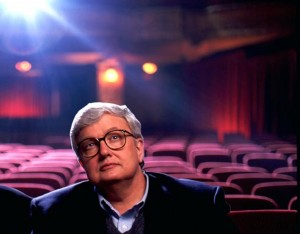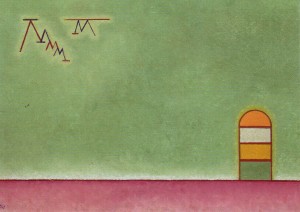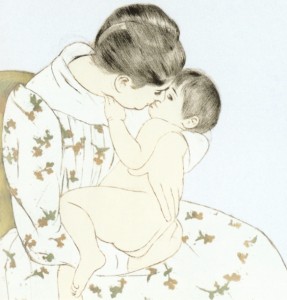From that Venerable Sage….
 “Kindness covers all my political beliefs. No need to spell them out. I believe that if at the end, according to our abilities, we have done something to make others a little happier and something to make ourselves a little happier, that is about the best we can do.
“Kindness covers all my political beliefs. No need to spell them out. I believe that if at the end, according to our abilities, we have done something to make others a little happier and something to make ourselves a little happier, that is about the best we can do.
“To make others less happy is a crime. To make ourselves unhappy is where all crime starts. We must try to contribute joy to the world. That is true, no matter what our problems, our health, our circumstances. We must try. I didn’t always know this and I’m happy I lived long enough to find it out.”
— Roger Ebert
Learning Meditation at Monsanto
 I listen to a lot of Dharma Seed talks, but this was the first time I’d ever heard one where someone in the audience mention me! Not by name. But still. It was weird.
I listen to a lot of Dharma Seed talks, but this was the first time I’d ever heard one where someone in the audience mention me! Not by name. But still. It was weird.
The talk was given by Diana Winston (you can listen to it here). I don’t know Diana, but I have met her once, at one of the Dedicated Practitioner Program (DPP) retreats. So I decided to send her an email. Here’s what I wrote:
Dear Diana,
I was listening to one of your recent talks on Dharma Seed (12 Myths of Mindfulness) and I heard you tell the audience that Mindfulness Meditation had been taught at Monsanto, which of course was a shock to most people, but then someone said that there were a couple of people in the Dedicated Practitioner Program (DPP5) who had been in that program at Monsanto. Actually, to the best of my knowledge, there was only one person in the DPP5 program who had been at Monsanto, and that person is me.
I just wanted to let you know that the Insight Meditation program taught at Monsanto (that’s what they called it in 1998) was amazing. And for me, at least, life changing. Mirabai Bush and Steven Smith were the teachers. It was a 3-day silent retreat, held at the Fetzer Institute, and it was offered to anyone in the Monsanto organization — no matter what job, or at what level. The cost came out of CEO Bob Shapiro’s “discretionary” funds (which meant that your department didn’t have to pay for it) and it was time off in the middle of the week that couldn’t be counted against your vacation, and that your supervisor couldn’t say no to, no mater how much work there was to do. (It was simply Bob’s gift to each of us. A gift for which I will forever be grateful.)
It wasn’t offered as a way to make more money, or to be a better employee or anything like that. It was presented as a way to allow us to have “insight.” The announcement didn’t say exactly what kind of “insight.” That was left for us to decide for ourself. But what they offered was a straight-up vipassana-style sitting/walking/eating/etc meditation retreat. Plus one guided Metta meditation at the end.
I had never done anything like it before. I didn’t have any particular reason for going, except that it sounded interesting and I was curious to see what it would be like to spend 3 days in silence.
But I could tell from the very beginning that there was something really special about Mirabai. I couldn’t have articulated it then, but looking back on it, I believe it was her rare combination of selfless confidence and undefended, unrestricted friendliness that I was so drawn to. At the end of the retreat, after the last meditation (metta), I couldn’t stop crying. I was so deeply touched by the possibility of a vast, unlimited field of unconditional kindness….and the realization that I had somehow always felt cut off even from the possibility of such kindness…that I simply could not “snap back” into my corporate persona. So I just cried.
There is more to tell, but I will leave it at that.
I just wanted you to know something of what it was like to have been introduced to meditation at Monsanto.
May you be well, safe and happy,
Jan Rosamond
When the Mind Gets Quiet
 The depth of Buddhist teachings explores the mysteriousness of human life and incarnation as a human being, having consciousness and so forth….
The depth of Buddhist teachings explores the mysteriousness of human life and incarnation as a human being, having consciousness and so forth….
When the mind gets quiet and silent, then that sense of mystery starts to open. And the questions about what really matters and what are the ways of operating in this human life that bring joy, that bring freedom, that bring benefit, are what start to arise.
— Jack Kornfield
(image from Carnaval de Venise, by Fulvio Roiter)
And the Answer Is….
 Last night the Dharma Seed KM Group listened to a great talk, given by Joseph Goldstein during the second half of the 3-month retreat at IMS (going on right now), in which he answers several excellent questions (submitted in written form) from some of the people at the retreat.
Last night the Dharma Seed KM Group listened to a great talk, given by Joseph Goldstein during the second half of the 3-month retreat at IMS (going on right now), in which he answers several excellent questions (submitted in written form) from some of the people at the retreat.
The questions are:
(1) What is the difference between mindfulness, awareness and consciousness? And how can we practice seeing these as not self?
(2) Is this all there is….getting lost in fantasy, coming back to this seat, meeting the hindrances, coming back to the various vibrations and weird pressure sensations of the body? Everything feels empty, like it’s really just the six sense doors over and over…even out in real life, there’s no role or position or partner or adventure or success or house or anything outside of this. No matter what, it’s just the six sense doors. Frankly it’s feeling depressing and I’ve been feeling it for a year now. I feel this sense of grief and sometimes rage and am desperately wanting it to be something more than empty. But it’s said that the joy is in the emptiness. Can you help me/us feel that’s true or possible?
(3) Sometimes I feel so much joy I want to start skipping, but I fear it would disturb others. Should I just skip? Or is this not appropriate?
(4) I am a 3-month yogi. During the course of the retreat, I have gotten insight from direct experience that when tormenting mind states arise, it is based on either something that happened in the past or something that may happen in the future. At first these tormenting states would sweep me away for a day or two. I couldn’t even recall that it was impermanent. Now as of the last two times these states arose, there is greater space and awareness that this too will pass…that its nature is impermanent. How long do tormenting mind states continue to arise? What is their purpose? Are they a regular part of practice? Aside from doing no harm, noting, seeing its impermanence, metta and forgiveness, are there any other tools to use to get free from these states of mind that indeed torment?
(5) In the Satipatthana Sutta, there is a lot of talk about observing things internally, externally or both internally and externally. What constitutes an internal observation? What constitutes an external observation? What is the significance of this distinction?
(6) When doing Forgiveness Practice, when is it appropriate to ask the other person to actually forgive you instead of just saying the phrases in your head?
(7) Suppose re-birth really happens and accept it…there is no me, no mine, no myself. Who or what gets reborn?
(8) Who and what is the “managing unit” that seems to be behind the decisions? There is some managing agent that decides to go fishing for enlightenment…or whatever fish is chooses to go fishing for. Or to have a sitting or walking meditation…or to walk slow or fast…and where to turn the attention to….or to ask this question. Who is this agent?
Interested in the answers? Listen to what Joseph has to say here.
Because the Moon was Full
 There was a Full Moon yesterday, which I celebrated by listening to several of the talks (you can find them here) given by Ajhan Sucitto at the month-long retreat going on right now at the Forest Refuge, in Barre, Mass. It’s a retreat I applied for, but didn’t get into. There are only 30 spaces at the Forest Refuge, so for popular retreats like this one, they hold a lottery to see who gets in. And I didn’t. But it’s OK, because I’m going to sit an 8-day retreat with him at IMS next April.
There was a Full Moon yesterday, which I celebrated by listening to several of the talks (you can find them here) given by Ajhan Sucitto at the month-long retreat going on right now at the Forest Refuge, in Barre, Mass. It’s a retreat I applied for, but didn’t get into. There are only 30 spaces at the Forest Refuge, so for popular retreats like this one, they hold a lottery to see who gets in. And I didn’t. But it’s OK, because I’m going to sit an 8-day retreat with him at IMS next April.
In further full-moon celebration, I offer this poem by W. S. Merwin:
Lunar Landscape
Nobody can tell you
anything new about
moonlight you have seen it
for yourself as many
times as necessary
nobody else ever saw
it as it appeared to you
you have heard all about it
but in the words of others
so that you fell asleep
it was photographed but
somewhere else and without
what was happening inside
its light and whenever it
was rhymed it disappeared
you cannot depend on
it use it for much send
it anywhere sell it
keep it for yourself bring
it back when it has left
and while it is lighting
the ocean like a name while
it is awake in the leaves
you do not need to look at it
to know it is not there
To Arrive at What You Are Not
 After sitting the weekend retreat with Phillip Moffitt, I came back home and picked up his book, Dancing with Life, which the KM group has been discussing for almost 2 years. The next-to-last chapter is titled: “Now That You Know, What Is It That You Know?”
After sitting the weekend retreat with Phillip Moffitt, I came back home and picked up his book, Dancing with Life, which the KM group has been discussing for almost 2 years. The next-to-last chapter is titled: “Now That You Know, What Is It That You Know?”
Here’s the part that really stood out for me:
Based on my years of experience of working with students, you most likely have some psychological/emotional issues that create an inner sense of scarcity or need in your ego identity that must be worked with before you can finish walking the Eightfold Path…..[This] is what must be released so that something new beyond your ego’s imagination and capacity can enter and flourish.
…It is difficult and confusing to work with your ego’s limitation, no matter what it is. This is because you need the ego’s cooperation in order to act in a manner that at times seems contrary to its own interest. As T.S. Eliot says in “Four Quartets”:
In order to arrive at what you are not
You must go through the way in which you are not.
The journey feels as strange as Eliot’s words because by definition you are “not being yourself,” yet you are being very genuine in not being yourself!
This is the paradox of the inner journey….You aren’t supposed to build your practice around “destroying your ego limitation,” rather you consciously go through your ego limitation in order to be freed from it.
***
(image: Green Vacancy by Wassily Kandinsky)
How to Train the Mind
 Joseph Goldstein will be one of the teachers at the 6-week retreat I’m going to, so I’ve been getting ready by listening to one of his talks every night. He has an absolutely fascinating series of talks — 47 in all! — on the Satipatthana Sutta. (Available on Dharma Seed here.)
Joseph Goldstein will be one of the teachers at the 6-week retreat I’m going to, so I’ve been getting ready by listening to one of his talks every night. He has an absolutely fascinating series of talks — 47 in all! — on the Satipatthana Sutta. (Available on Dharma Seed here.)
The talk I listened to last night was the 4th in this series and he talked a lot about the importance of noticing how everything is always Arising and Passing Away, and about what it means to “Enter the Stream” of Awakening….all of which was wonderful to listen to….but what really struck me was what he called “a way of holding it all in balance,” which he offered at the very end of the talk in the form of a Tibetan practice called The Seven-Point Mind Training:
(1) Consider all phenomena to be dreams.
(2) Be grateful to everyone.
(3) Don’t be swayed by outer circumstances.
(4) Don’t brood over the faults of others.
(5) Explore the nature of unborn awareness.
(6) At all times, simply rely on a joyful mind.
(7) Don’t expect a standing ovation.
(image from: Phantasmagoric Theater Tarot)
Well, Then What?
 In an interview with Ajahn Sucitto (available here), Sally and Guy Armstrong ask: “We’ve heard rumors that you’re retiring. Any truth to that?” This question was of particular interest to me because as of today, it’s official: I will retire at the end of this month (from my “day job,” not from the DharmaTown Times!).
In an interview with Ajahn Sucitto (available here), Sally and Guy Armstrong ask: “We’ve heard rumors that you’re retiring. Any truth to that?” This question was of particular interest to me because as of today, it’s official: I will retire at the end of this month (from my “day job,” not from the DharmaTown Times!).
Then they asked this follow-up question, which seems even more pertinent: “Where do you think you might go? Will you go somewhere, or land anywhere?”
Sucitto replies:
We’ll see what causes and conditions come together. I don’t feel I want to be zooming around every which way. These are new topics, new areas for us, whether to stay in the monastery or leave for a few years and just come back and be somewhere in the background. I don’t know.
And as a practice, it’s good not to know. I mean, because you spend so much of your time just popping the soap bubbles of fantasy, that after a while you can’t really blow ’em that hard, thinking: “Oh, I want to be in the idyllic…” You know, we’ve been there. Pop. “This is going to be the answer to my life….” Pop.
So I don’t feel like blowing any soap bubbles of fantasies. And then I go to that place of, well, then what? And then I go, well….
Stop.
Let it be open.
“What’ll I do then?”
Stop.
Let it be open.
Because then it really is a change of gear. It’s not just another strategy. It’s just know that life will take care of you — and wing it. Life will take care of you. And then see… just see what seems to be the most beckoning causes and conditions that seem to lead onward.
**
Which is kind of what I have in mind. My last day of work will be August 30. On September 9, I leave for a 6-week retreat at IMS (Insight Meditation Society). Then in January, I go to Burma for a month.
And then what?
Let it be open.
You’re Here, You’re OK
The latest issue of the Spirit Rock News just came out and it’s got a great interview with Ajahn Sucitto. You can read it on-line by clicking here. In the mean time, here’s a peek:
 “It’s pretty obvious in our normal experience that when we experience a strong passion, there’s a bodily sense as well as a heart-sense with that….As you begin to sensitize, you realize that the basic colorations of the heart have bodily references to them….
“It’s pretty obvious in our normal experience that when we experience a strong passion, there’s a bodily sense as well as a heart-sense with that….As you begin to sensitize, you realize that the basic colorations of the heart have bodily references to them….
“In the suttas it says if your body’s relaxed and comfortable you don’t need to make any particular push [to focus the mind in meditation]. The heart will be happy. And when the heart is happy, it will be concentrated. So body, heart, concentration…yeah…and happiness.
“So the connection there that the Buddha’s making is the body needs to be relaxed — open body — and the heart, the mind, needs somewhere to sit. Otherwise it’s going to have to keep jumping from this to that to find a basis. Now, because the heart’s affected profoundly by feeling and the body’s affected by feeling, they can meet at the feeling place. And if the body feels steady and comfortable, the heart will feel steady and comfortable.
“It’s not the case that by an act of will I can make my heart/mind steady and comfortable. I can’t say: ‘be quiet, be happy,’ but I can get my body to relax and steady. When we come into what we call classic deep meditation, the initial instruction is mindfulness of the body, and as you deepen into that, your heart will come to it.
“So then the body acts as ‘the parent.’ You know, the one that can hold the little heart when it’s frightened, desperate and needs things to hold onto. Says ‘you’re here, you’re okay, and then it does settle.”
(image from: Mother’s Kiss, by Mary Cassatt — detail)
How to be Happy
This from a talk by one of my teachers, Kate (Lila) Wheeler, featured in this month’s BSBC Insight Journal:
 “True happiness is the reward for doing things for their own sake, for the joy in being whole-hearted and present. So if we want ultimate liberation…and we also just want to be happier….being present when we’re doing something is critical.
“True happiness is the reward for doing things for their own sake, for the joy in being whole-hearted and present. So if we want ultimate liberation…and we also just want to be happier….being present when we’re doing something is critical.
“You may have heard about experiments in which they sent messages to people on their smart phones at random intervals asking how happy they were. Of 5,000 people involved, about 3,000 answered. They would ask them what they were doing, and to rate their happiness on a scale of 1 to 10. About 60 percent of people were totally distracted, and when distracted, the mind is not that happy.
“The upshot of the whole study would be: if, when you’re ironing a shirt, you are present and mindful, you will be happier than if you’re ironing a shirt and fantasizing about being in the Caribbean.”
Skeptical?
Check it out for yourself!
